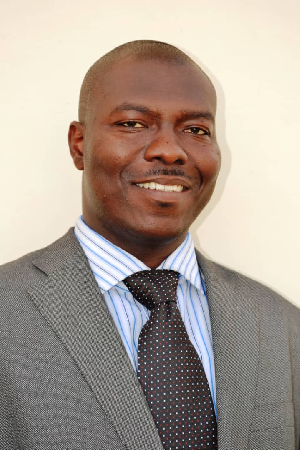- Home - News
- TWI News | TV
- Polls
- Year In Review
- News Archive
- Crime & Punishment
- Politics
- Regional
- Editorial
- Health
- Ghanaians Abroad
- Tabloid
- Africa
- Religion
- Election 2020
- Coronavirus
- News Videos | TV
- Photo Archives
- News Headlines
- Press Release
Business News of Tuesday, 12 July 2016
Source: thefinderonline.com
Industries cry over dumsor
Industries in Ghana say the failure of Ghana Grid Company (GRIDCo) to publish a load shedding timetable has made planning difficult, throwing their production cycles out of gear.
Mr Solomon Kotei, General Secretary of the Industrial and Commercial Workers Union (ICU), the umbrella body for industries, told The Finder that the union is inundated with complaints from its members that the situation is negatively impacting their operations.
A study conducted by the Institute of Statistical, Social and Economic Research (ISSER) indicates that Small and Medium Enterprises (SMEs) in Ghana lose $2.2 million daily due to the power crisis.
“Industry is having a very difficult time, especially because this is not a scheduled one, very erratic.
“Planning is being turned upside down, and for the fact that using generators amounts to doubling the cost of production.
“If you double your cost, you cannot change your price because you are struggling to get a market share to sell your commodity,” he said.
“If industry knows that we have resumed dumsor, and know the times they will have power, they will plan accordingly and run certain shifts that will cover up. Labour will be willing to adjust to such arrangements. But if this is unknown to them, how can they plan such shifts?
“They keep shifting the goals post and we are not clear what the true story cannot be told.
“At least, when it declared dumsor, everybody knows and could plan in that difficulty,” he added.
Mr Kotei stated that it is better to declare load shedding and provide a timetable that is strictly followed, than for service providers to say they are solving a problem that the consumers do not even know the cause.
“Here we are, people have borrowed money to work and pay and they cannot work.
“With the time value of money, the banks will not renegotiate the interest because of the challenge.
“It is just not pleasant,” he said.
Mr Kotei argued that the cause of the recent dumsor has not been told in real terms, and even the President, in a bid to allay the fears of Ghanaians, said he will not declare load shedding.
“The cause of the dumsor is unknown and we are still wobbling through it, and if we don’t take care, employers will have to take decisions again and this is where, as labour, we urge those in charge of power to be able to tell Ghanaians now if it is debt we owe that is not allowing supply of fuel.
“Is it a mechanical fault on the turbines? Nobody really appreciates what is being explained, and therefore serious employers cannot plan.
“Without prior notice, the light goes off. But the law says if the worker comes to work and the employer did not give the worker work to do, the employer must pay the worker.
“The burden of the employer is now being shifted to employees.
“All kinds of stringent measures and controls are being implemented by employers, which is not helping matters at the workplace,” he added.
The indebtedness of the Electricity Company of Ghana (ECG) is said to be GH¢3.7 billion.
Mr Kotei explained that the worry of labour is how ECG accrued such debt because ECG collects bills from industries and those who not pay get disconnected.
“We all know that if you don’t pay ECG will disconnect you. So where is the debt coming from, Where is the money going?
“Which segment of society is enjoying electricity but not paying? The result of the debt is an illusion to some of us.
“If it is the government sector that is not paying, does it mean they are not viable to be there? Because you cannot owe this amount and continue to be there. We believe some decisions must be taken to free ECG to have its smooth level and know how to operate.
“Those of us who are good citizens and pay bills are suffering the effect of the increases.
“That irresponsibility should not be passed on to be destroying businesses,” he said.
Mr Kotei stressed that businesses offer employment and “the moment you destroy businesses, you are going to push for redundancies”.
He said the impact of losses incurred by businesses on the economy is huge so power providers should not treat Ghanaian businesses like that.











